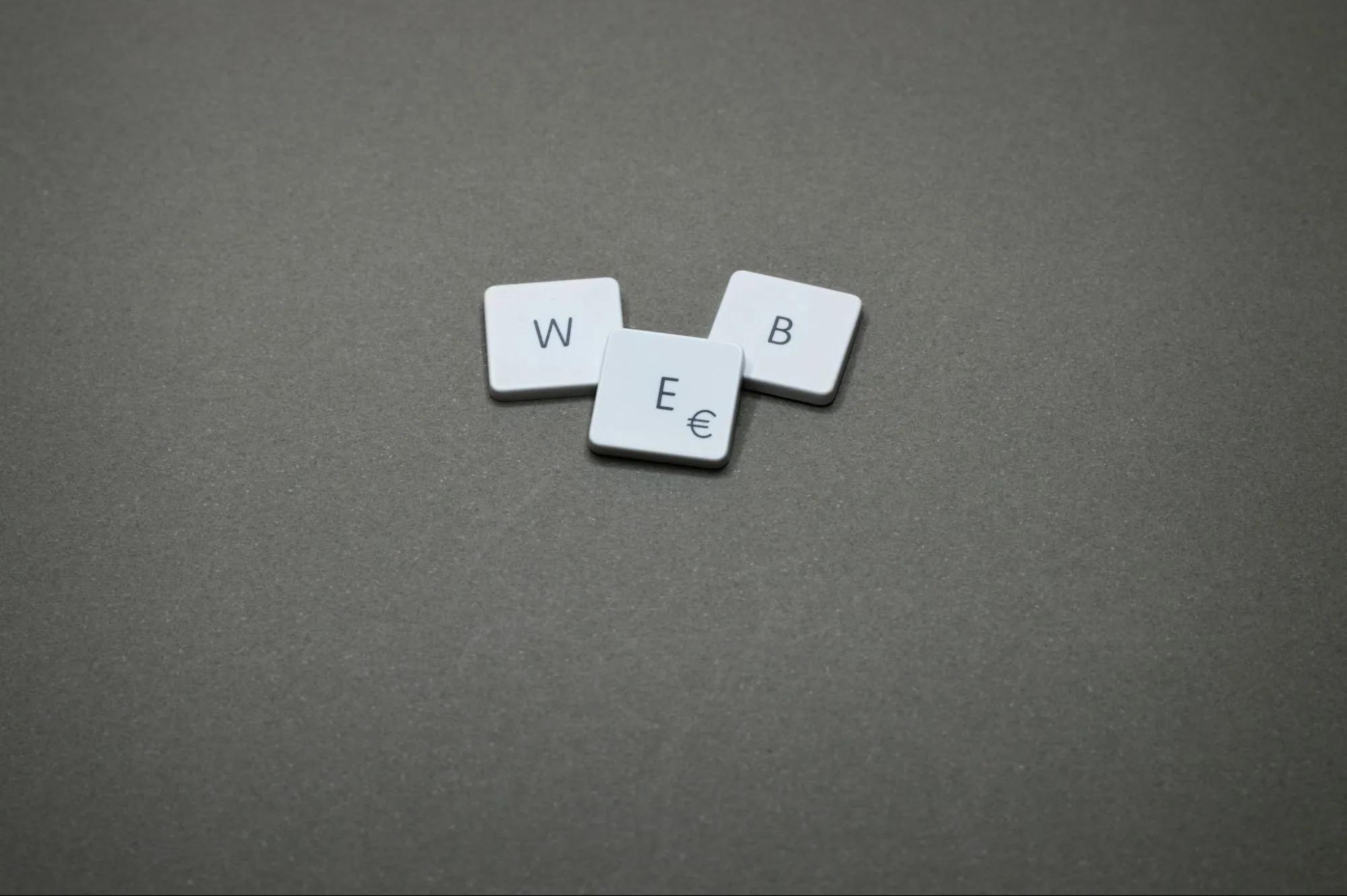This content should not be construed as legal advice. Always consult an attorney or legal professional regarding your specific legal situation.
In a recent post, I shared all I’ve learned about purchasing multiple domain name variations. Copyright and trademarks have been on my mind a lot lately. This got me thinking about whether a brand or business should trademark a domain name.
Now, because I’m not a lawyer and don’t pretend to be one, I went in search of people much smarter than me who could answer my simple question. Should you trademark your domain name?
Below, I’m sharing what they told me to help you decide when to consider seeing a trademark attorney for yourself.
Your business needs a website.
Marc P. Misthal, Principal, GRR

Marc P. Misthal is a trademark attorney with Gottlieb, Rackman & Reisman, P.C. in Manhattan, New York. He told me that in short, yes, business owners should trademark their website domain names. The longer answer is a little more complicated. Here’s what he had to say:
“In the U.S., trademark rights are acquired by using a mark, not by registering it. So applying a mark on a hangtag, label, packaging, sign, etc. would create rights in the mark—registration is not necessary.
“The question here seems to be whether a business owner should register their domain name as a trademark. If they are using it as a trademark then yes, they should. What does that mean? Simply using a domain name as part of a URL is not going to be enough to secure a trademark registration. The Trademark Office requires proof that a mark is in use before it will issue a registration, and it will not accept a screenshot showing a URL with the domain as proof of use. If the domain name is being used as the brand, then there will likely be additional use, such as prominent use on a website selling products or services, that the Trademark Office will accept.
“Having a trademark registration is very valuable. A registration makes notice letters more impactful, and is helpful in taking action against infringing uses that appear on online platforms; many platforms will not take action to stop an infringement without proof of a trademark registration.”
David Reischer, Esq., LegalAdvice.com
David Reischer is an attorney and CEO of LegalAdvice.com. He says that trademarks are imperative for businesses that want to protect their brand names. But you need to go beyond trying to trademark just the domain name. Here’s what he had to say:
“Domain trademarking a mark that consists of a domain name may be possible. It would be registered as a trademark or service mark in the U.S. Patent and Trademark Office (U.S.P.T.O). However, just like any other mark that comes before the U.S.P.T.O, the domain name may only be approved on the Principle Register if it functions to identify the particular source of goods or services offered. That is to say, the mark must be distinctive so as to be capable of distinguishing the applicant's goods or services from others.
“The main benefit of acquiring trademark protection is for the legal benefit of stopping other third parties from infringing on the brand's trademark. A business needs to trademark all corporate and product brands that are inherently distinctive to the identity of the business. Typically a business will trademark a corporate logo, product line identifiers, slogans, and any other attributes that are source identifiers of the business—including a domain name.”
Laura Winston, Principal, Offit Kurman

Laura Winston is a trademark attorney with more than 25 years of experience and a principal in the AmLaw 200 law firm Offit Kurman. Here’s what she had to say:
“Securing trademark rights and registering a trademark used on one’s website has always been important and highly recommended. As we move into the realm of the metaverse, NFTs, and other new digital assets, it will be even more important to secure brands that are used digitally. There are tips and tricks for claiming trademark rights and obtaining a trademark registration for a domain name. Most significantly, it needs to be used as a trademark on the website, not just as the URL that directs to the website.”
James Yang, OC Patent Lawyer
James Yang is a patent attorney and a partner with the firm of Klein, O’Neill & Singh LLP in Orange County, California. Here’s what he had to say:
“The name of the domain should be trademarked because that is typically their main brand. You don't want others to take away your ability to use your own trademark. Also, before investing a lot of time and money into your main brand, you would want to get a trademark search done. The trademark search [sometimes] mitigates the need to rebrand after a product launch.”
Jeremy Peter Green Eche, JPG Legal

Jeremy Peter Green Eche is a trademark broker and attorney with JPG Legal. He says you only want to trademark your domain name if it matches your brand name. Here’s what he had to say:
“I'm a trademark attorney running a four-lawyer trademark-focused law firm based in Brooklyn, New York. I also run a trademark marketplace called Communer where people can buy and sell trademarks, often with domain names attached.
Business owners should always strive to own a federal trademark registration for their brand name. But they should only register their full domain name as a trademark if that's the name they use in their branding.
For example, if somebody uses the domain name Google.com, they should only register Google.com as a trademark if they present themselves in their branding as Google.com. If it just says Google at the top of the website, then they should register Google as a trademark.
If their domain name is generic, e.g. Petfood.com, then they are not going to be able to register their name as a trademark without including the top-level domain. Generic terms ordinarily cannot be registered as trademarks. So in this example, the company absolutely should try to register Petfood.com as a trademark, and not just Pet Food or Petfood. Before a U.S. Supreme Court decision in 2020 called *Bookings.com*, you could not even register a generic name with a .com top-level domain added, but now it's actually allowed.”
Key takeaways
Many of the other attorneys I spoke with had the same general words of wisdom. Pretty much all agreed that trademarks are a good idea for brand preservation and protection. How you go about your trademark is where things get tricky.
Domain name trademarking requirements and who it will work for:
Based on my research and feedback from attorneys, to trademark a domain name, it needs to be your brand identifier. Otherwise, you will be better off trademarking your brand name, logo, and other elements of your brand identity.
Why does someone need to trademark a domain name?
If it is your brand identifier, trademarking it will protect your brand and prevent others from using your brand name. This can help potential customers avoid being confused about who they are working with/buying from.
What can happen if you don’t trademark?
The Reader’s Digest version is that if you don’t trademark, you might not be legally protected from someone else attempting to use your brand/company name. That’s not to say they would be able to use your name, but a lawsuit could prove quite costly.
Next steps to trademark your domain name
So, where do you go from here? Seek out legal counsel. Always consult an attorney to better understand your specific situation. Attorneys offer free consultations to at least help point you in the right direction. One of the first things you should do is check trademark availability to ensure your desired name or domain isn't already taken. It’s no secret that working with a lawyer isn’t cheap. But the amount of money and headache it can save you, in the long run, might be worth it. After chatting with all these lawyers I know I’m in the market for a trademark attorney for a business idea I’ve been considering. Based on everything they shared with me, I think trademarks are a necessary business expense. If nothing else, it gives you peace of mind that your brand/company identity is better protected.
This content should not be construed as legal advice. Always consult an attorney or legal professional regarding your specific legal situation.
*AI-assisted full website including all of the premium features like online store, appointment scheduling, and marketplace selling to name a few, requires paid subscription.
Social media marketing calendar available with GoDaddy Airo, some features will require paid subscription.
Professional Email through Microsoft Office 365 30-day free trial with an option to renew into a paid subscription beyond the promotional period.
While the LLC starter plan is free, there are likely some state and/or local filing fees associated with your filing which will be determined during the filing process.







